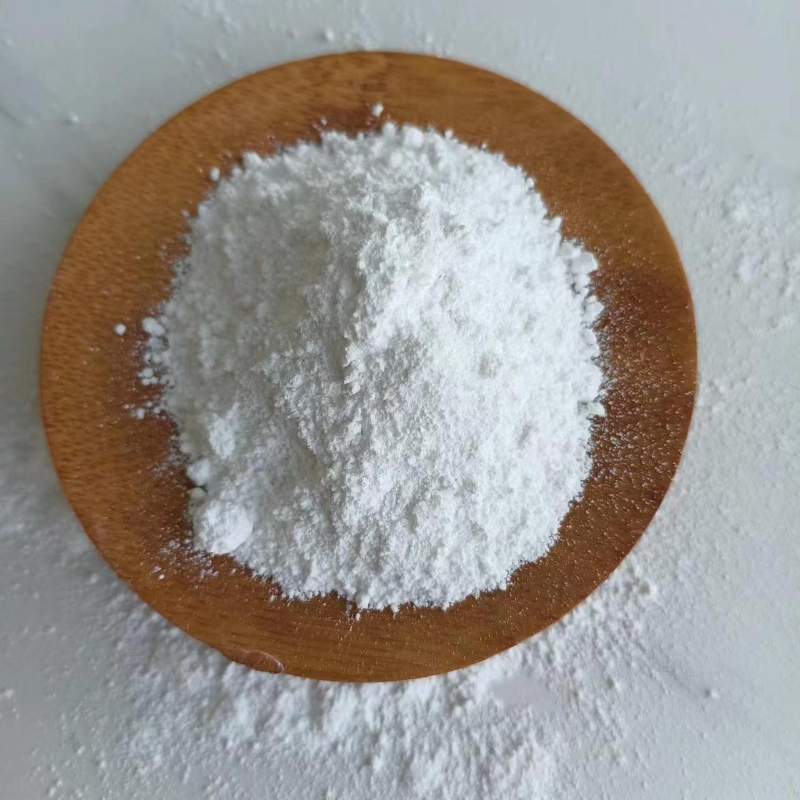-
Categories
-
Pharmaceutical Intermediates
-
Active Pharmaceutical Ingredients
-
Food Additives
- Industrial Coatings
- Agrochemicals
- Dyes and Pigments
- Surfactant
- Flavors and Fragrances
- Chemical Reagents
- Catalyst and Auxiliary
- Natural Products
- Inorganic Chemistry
-
Organic Chemistry
-
Biochemical Engineering
- Analytical Chemistry
- Cosmetic Ingredient
-
Pharmaceutical Intermediates
Promotion
ECHEMI Mall
Wholesale
Weekly Price
Exhibition
News
-
Trade Service
Introduction Hepatic encephalopathy (HE) is one of the serious complications of patients with liver cirrhosis, the incidence is about 30%-40%, the 1-year survival rate is about 50%, and the 3-year survival rate is only about 25%.
The main drugs currently used for the treatment of HE include lactulose, rifaximin, ornithine aspartate, arginine, etc.
, but the role of human albumin in HE is still controversial.
Recently, Hiramine and others published a study on Hepatol Res.
The results showed that in Japanese patients, rifaximin can prevent the recurrence of HE and reduce the cumulative incidence of HE-related hospitalizations.
Serum albumin level ≥2.
7 g/dL is an independent predictor of rifaximin efficacy.
Compared with patients with serum albumin levels <2.
7 g/dL, patients with serum albumin levels ≥2.
7 g/dL had significantly lower incidence of dominant HE and hospitalizations.
Hiramine et al.
believe that continuous detection of serum albumin levels can help predict and control the occurrence of HE.
Albumin is a multifunctional protein, and its concentration and function are reduced in advanced liver failure.
This article mainly describes the role of serum albumin in HE.
1.
Serum albumin level can be used as an indicator for screening HE.
The decrease in serum albumin level may be related to the occurrence of HE.
Bai et al.
reported that decreased serum albumin levels are an independent risk factor for overt HE and HE-related death, with cut-off values of ≤3.
16 g/dL and ≤2.
28 g/dL, respectively.
Kaji et al.
reported that patients with liver cirrhosis who are ≤65 years old and whose serum albumin level is less than 3.
05 g/dL have a higher risk of HE-related cognitive dysfunction.Recently, Kondo et al.
reported that serum albumin level is a predictor of hidden HE, defined as an abnormal Stroop-on test result, with a cut-off value of 3.
2 g/dL.
Therefore, the serum albumin level can be used as a useful indicator for HE screening.
2.
Albumin infusion can effectively prevent the occurrence of overt HE.
Albumin infusion can effectively prevent the occurrence of overt HE and improve the severity of overt HE, because albumin can expand the volume of blood vessels, improve microcirculation, and has Strong antioxidant capacity.
Albumin infusion may also reduce the mortality of HE.
Recently, an open-label randomized trial (ANSWER) found that long-term human albumin infusion can significantly reduce the incidence of grade 3-4 HE in patients with decompensated liver cirrhosis.
A randomized double-blind study included patients with dominant HE who were treated with rifaximin and infused with albumin or saline daily.
The results showed that albumin did not improve the remission rate of HE, but it could improve the 90-day survival rate of patients .
Current guidelines recommend that albumin be infused when the serum albumin level is less than 2.
5 g/dL.
But for patients with liver cirrhosis with hypovolemia and refractory ascites, even if the serum albumin level is >2.
5 g/dL, treatment should be started as soon as possible.
Even if the serum albumin level of HE patients is >2.
5 g/dL, albumin should be given early. References: [1] Bai Zhaohui, Qi Xingshun, BAI Z, BERNARDI M, YOSHIDA EM.
Infusion of human albumin can reduce the incidence of dominant hepatic encephalopathy in patients with liver cirrhosis and increase its remission rate[J].
Journal of Clinical Hepatobiliary Diseases , 2020,36(01):226.
[2] Akahane T, Yoshiji H.
Role of serum albumin in hepatic encephalopathy[J].
Hepatol Res.
2021 Apr;51(4):353-354.
[3] Hiramine Y , Uto H, Mawatari S.
Efficacy of rifaximin, a poorly absorbed rifamycin antimicrobial agent, for hepatic encephalopathy in Japanese patients[J].
Hepatol Res.
2021 Apr;51(4):445-460.
Contribution email: tougao@medlive.
cn
The main drugs currently used for the treatment of HE include lactulose, rifaximin, ornithine aspartate, arginine, etc.
, but the role of human albumin in HE is still controversial.
Recently, Hiramine and others published a study on Hepatol Res.
The results showed that in Japanese patients, rifaximin can prevent the recurrence of HE and reduce the cumulative incidence of HE-related hospitalizations.
Serum albumin level ≥2.
7 g/dL is an independent predictor of rifaximin efficacy.
Compared with patients with serum albumin levels <2.
7 g/dL, patients with serum albumin levels ≥2.
7 g/dL had significantly lower incidence of dominant HE and hospitalizations.
Hiramine et al.
believe that continuous detection of serum albumin levels can help predict and control the occurrence of HE.
Albumin is a multifunctional protein, and its concentration and function are reduced in advanced liver failure.
This article mainly describes the role of serum albumin in HE.
1.
Serum albumin level can be used as an indicator for screening HE.
The decrease in serum albumin level may be related to the occurrence of HE.
Bai et al.
reported that decreased serum albumin levels are an independent risk factor for overt HE and HE-related death, with cut-off values of ≤3.
16 g/dL and ≤2.
28 g/dL, respectively.
Kaji et al.
reported that patients with liver cirrhosis who are ≤65 years old and whose serum albumin level is less than 3.
05 g/dL have a higher risk of HE-related cognitive dysfunction.Recently, Kondo et al.
reported that serum albumin level is a predictor of hidden HE, defined as an abnormal Stroop-on test result, with a cut-off value of 3.
2 g/dL.
Therefore, the serum albumin level can be used as a useful indicator for HE screening.
2.
Albumin infusion can effectively prevent the occurrence of overt HE.
Albumin infusion can effectively prevent the occurrence of overt HE and improve the severity of overt HE, because albumin can expand the volume of blood vessels, improve microcirculation, and has Strong antioxidant capacity.
Albumin infusion may also reduce the mortality of HE.
Recently, an open-label randomized trial (ANSWER) found that long-term human albumin infusion can significantly reduce the incidence of grade 3-4 HE in patients with decompensated liver cirrhosis.
A randomized double-blind study included patients with dominant HE who were treated with rifaximin and infused with albumin or saline daily.
The results showed that albumin did not improve the remission rate of HE, but it could improve the 90-day survival rate of patients .
Current guidelines recommend that albumin be infused when the serum albumin level is less than 2.
5 g/dL.
But for patients with liver cirrhosis with hypovolemia and refractory ascites, even if the serum albumin level is >2.
5 g/dL, treatment should be started as soon as possible.
Even if the serum albumin level of HE patients is >2.
5 g/dL, albumin should be given early. References: [1] Bai Zhaohui, Qi Xingshun, BAI Z, BERNARDI M, YOSHIDA EM.
Infusion of human albumin can reduce the incidence of dominant hepatic encephalopathy in patients with liver cirrhosis and increase its remission rate[J].
Journal of Clinical Hepatobiliary Diseases , 2020,36(01):226.
[2] Akahane T, Yoshiji H.
Role of serum albumin in hepatic encephalopathy[J].
Hepatol Res.
2021 Apr;51(4):353-354.
[3] Hiramine Y , Uto H, Mawatari S.
Efficacy of rifaximin, a poorly absorbed rifamycin antimicrobial agent, for hepatic encephalopathy in Japanese patients[J].
Hepatol Res.
2021 Apr;51(4):445-460.
Contribution email: tougao@medlive.
cn







